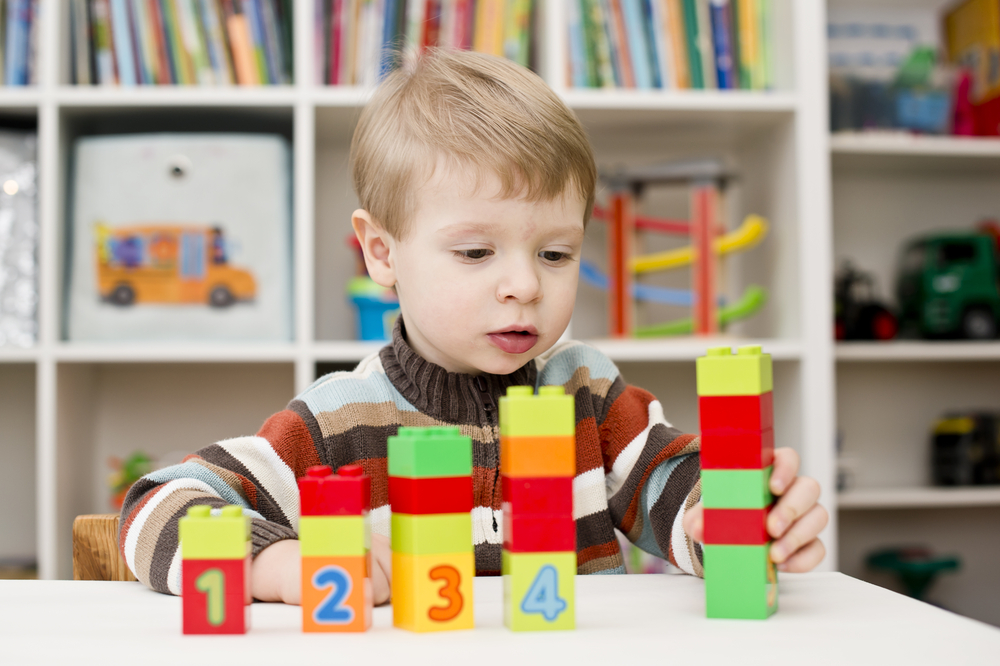If you’ve been searching for exciting math activities for preschoolers, you’ve come to the right place! Our HOMER learning experts have compiled a list of seven fun and easy activities that your young learner will enjoy.
Before we get to our list, did you know that your child has already started to incorporate math into their everyday lives?
Have you seen your child build a house with their building blocks and count the blocks they used? How about comparing the colors they used on the structure? Perhaps you’ve seen your child play outside and sort the leaves they collected.
These are just a few examples that math is all around us, and your child, although they may not be fully aware, has already started engaging with it.
But how do you make sure they are learning all the math concepts they need to know for preschool? The first step is knowing what those concepts are.
Preschool Math Concepts
1) Counting And Number Recognition
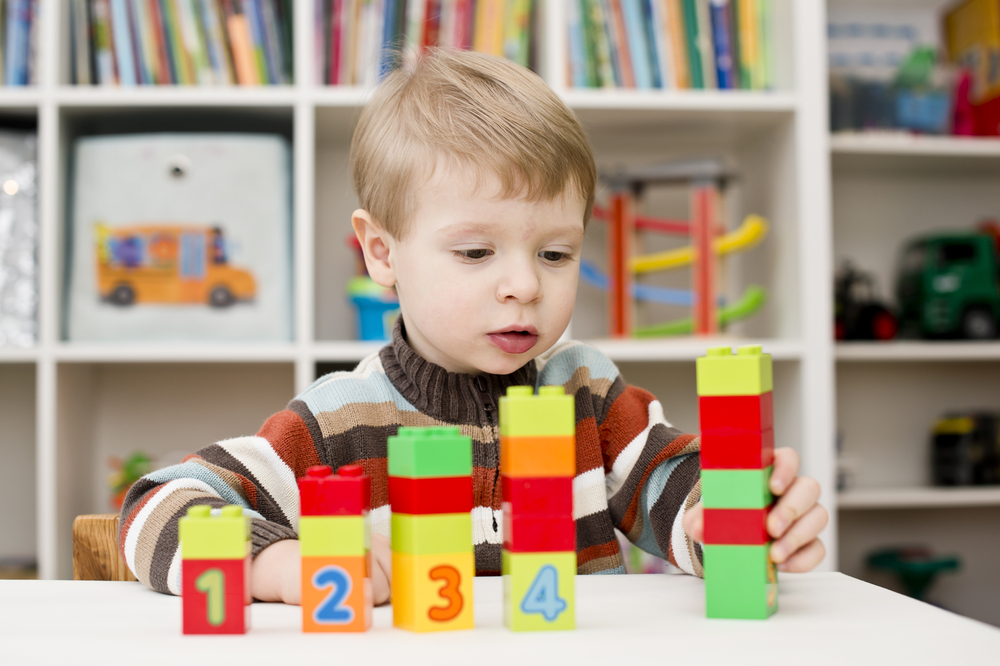
Counting is one of the foundations of math, so it makes sense that your preschooler will be introduced to it. In the beginning, the focus will be on rote counting. This involves reciting numbers in order.
As they continue with their preschooling, they will be introduced to rational counting, which is the ability to count items in a group and conclude that the last number counted is the amount for the set.
In addition to counting, preschoolers also learn the number symbols (1, 2, 3, etc.).
2) Shapes
In preschool, children start to look at and compare 2-D and 3-D shapes.
They may have already noticed these interesting shapes from the world around them (squares, triangles, circles, etc.), but at this age, they will begin to learn their names and understand their different attributes.
3) Measurements
Measurements are another essential foundation of math. They help us compare, sort, classify, and group objects into categories.
Preschoolers are introduced to measurements on a fundamental level. For example, they will work on comparing two different objects and sorting items by color, material, size, etc.
They will also learn informal measurements. For example, you might ask, “How many baby steps does it take to cross the room?” or, “How many grapes will fit in a small bowl?”
How To Approach Math Activities For Preschoolers
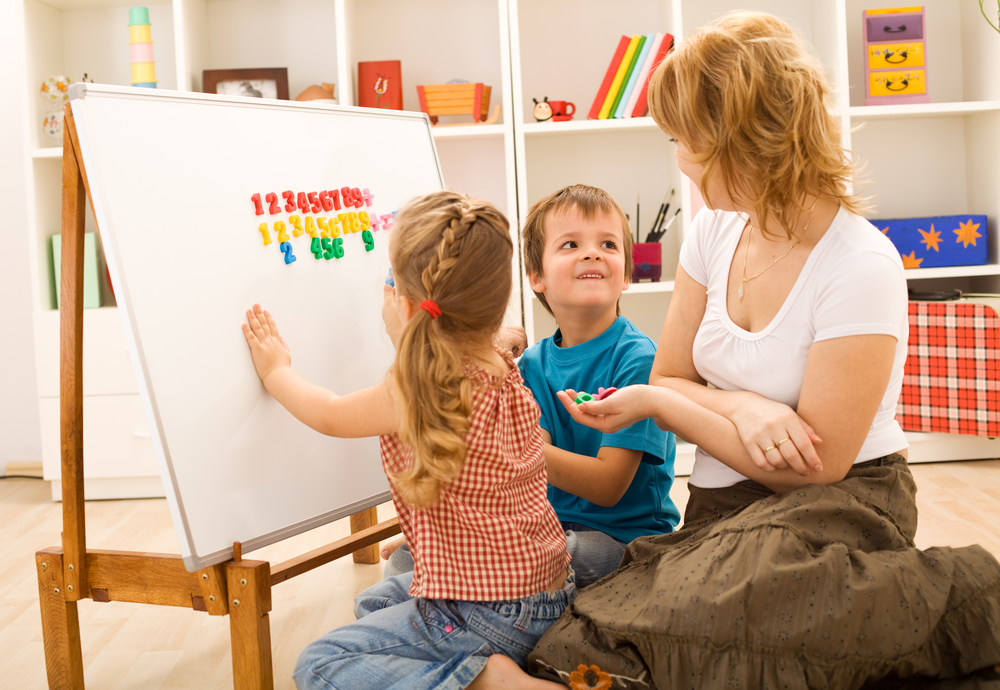
Now that you are aware of the math concepts your preschooler will be introduced to, you’re ready to help them excel! But before we break down our list of math activities for preschoolers, here are a few things to keep in mind.
1) Keep It Fun
When math games and activities are fun for children, they will want to play more, and thus build their skill level, while the fun also fosters a love of math. You can help your child develop a positive attitude toward it by keeping math activities and games fun.
If your child understands a concept or gets a question right, of course, this moment should be celebrated. However, if they seem to be struggling, know that working hard at solving a problem is what strong learners do! It takes a strong learner to keep at it or get the help needed to solve problems.
And remember that errors are bound to happen, and failures are often the first steps toward success. In other words, let your child know that it is OK to make mistakes.
Also, if you have multiple children, avoid comparing their math skills to each other, as this may frustrate the struggling child and make it even more challenging for them to learn.
2) Make It Age-Appropriate
It’s essential to always focus on age-appropriate math activities. Giving kids activities that are below or too far above their abilities may result in them becoming bored or frustrated.
3) Take It One Day At A Time
It’s OK for children to take their time understanding math concepts. One day, they may know how to count from one to 20, and the next day, they may stop at 14.
This is all a part of the process, and they will eventually get there. Remember to have patience for your young learner. They need your positive reinforcement and encouragement.
7 Fun Math Activities For Preschoolers
1) Follow The Recipe

What You’ll Need:
- 2 sticks of butter
- 1 cup of sugar
- 1 egg
- 1 ½ tsp of vanilla
- 3 cups of flour
- 1 ½ tsp baking powder
- ½ tsp salt
- Powder sugar
- Milk
What To Do:
If you already have an old tried-and-tested cookie recipe you love, you can follow that one. Or, if you’re hoping to try something new, here’s our sugar cookie recipe — a delicious way to create something that both you and your child will enjoy.
For this activity, your child can act as your sous chef as you help them measure each ingredient. This is a great activity because it helps children learn how measurements work, and you’ll have tasty treats to enjoy at the end!
2) Number Hunt
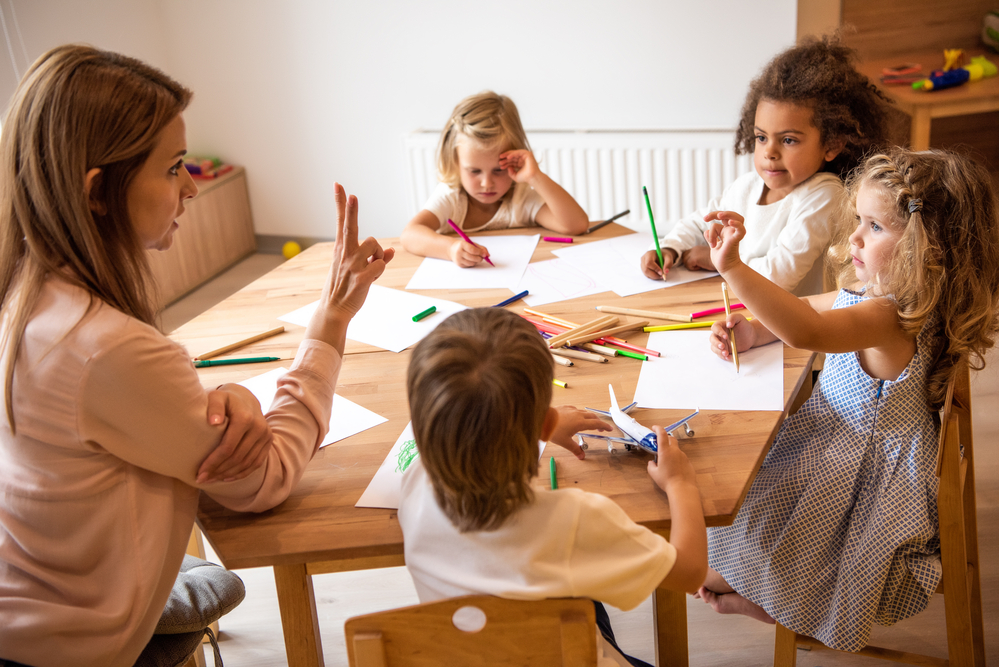
The goal of this activity is to challenge your child to find an item or a group of items. For example, ask them to find one teddy bear, two socks, and three balls.
If your child struggles a bit at first, that’s OK. You can start by encouraging them to search for just one item at a time (e.g., one teddy bear, one ball, etc.), and then increase the number of items as they progress.
This activity has great benefits, including helping children practice their counting skills.
3) Create A Height Chart
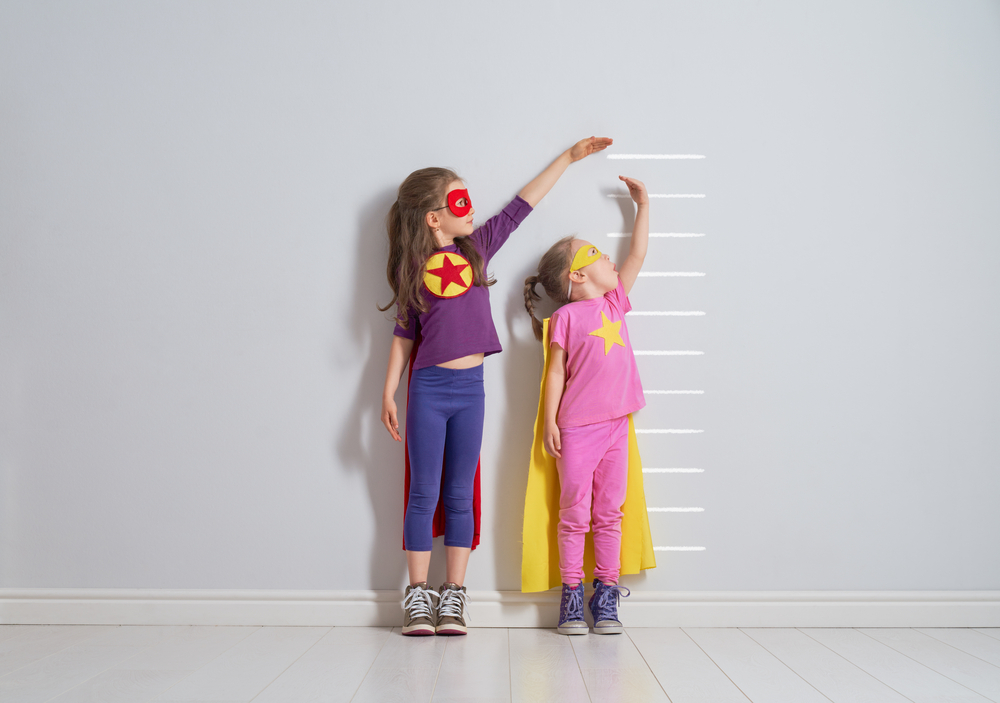
What You’ll Need:
- Wood board
- Permanent marker
- Pencil
- Ruler
- 3M command strips
What To Do:
The first thing you’ll need to do is measure and mark your wood board. To get started, decide where you want to hang the board and then mark where the one-foot spot is on your board in that position.
After that, help your child mark the rest of the board in one-inch increments. You can start marking with a pencil and then go over it with a permanent marker once you’re confident in your measurements.
Lastly, use command strips (or picture hanging strips) to hang the board up.
This activity will help your child continue practicing their understanding of numbers and measurements. They (and you!) will also enjoy witnessing their growth as you measure them over the months or years.
4) Cupcake Tin Counting Game
What You’ll Need:
- Cupcake tin
- Cupcake liners
- Marker
- A snack with small pieces (e.g., cereal O’s, puffs, blueberries, etc.)
What To Do:
One of our favorite math activities for preschoolers is the cupcake tin counting game. To get started, fill a cupcake baking tin with cupcake liners, then write a number in the center of each liner.
To play, have your child fill each cup with the corresponding number of snack pieces. You can check out this link for more tips on how to play.
This activity will help your child continue developing their number sense (and enjoy the delicious treats!).
5) Identify Shapes At Home
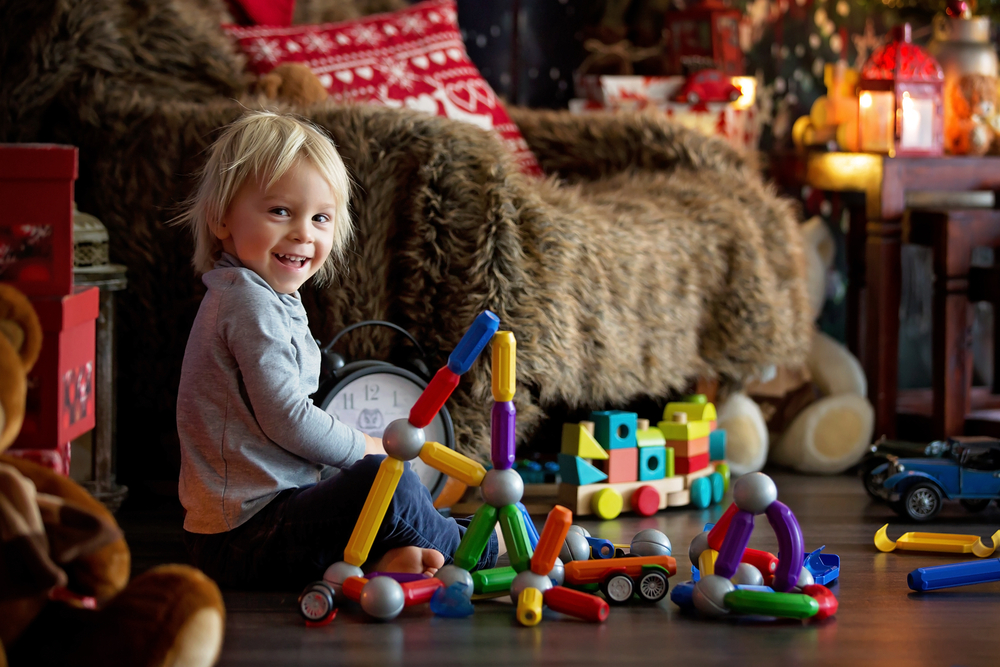
This is a fun and easy activity to help your child practice some of the shapes they’ll learn in preschool.
To get started, all you need to do is point out a shape, name it, and then encourage your child to do the same. For example, “This plate is round and has no edges. It’s a circle! Can you find another shape?”
Remember to name the shape and then highlight its attributes to help your child continue practicing shapes.
6) Mini-Tangram Puzzle
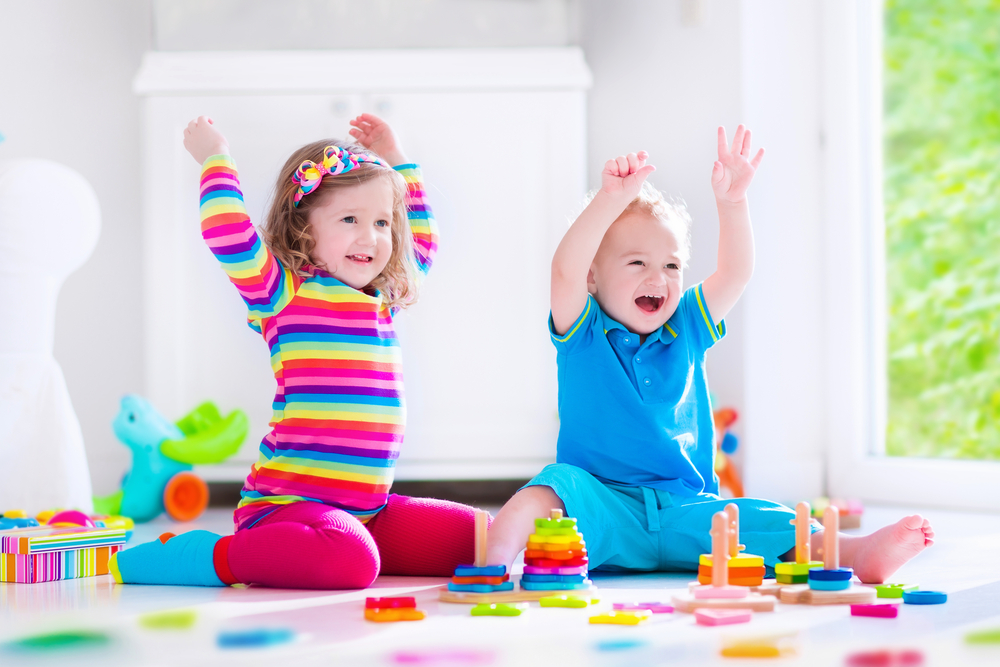
What You’ll Need:
- The HOMER mini-tangram puzzle
- Scissors
What To Do:
Print the download and help your child cut the shapes on the first page. Next, use the outline on page two to show your child where to put the pieces, then allow them to practice the puzzle on their own.
To give your child an extra challenge, encourage them to complete the puzzle using only the border on the third page.
This is a great activity to help familiarize your child with shapes.
7) Number Scavenger Hunt

What You’ll Need:
- Flashcards
- Marker
- Sheet of paper
- Stickers
What To Do:
Start by labeling your flashcards with the numbers one to 10 (one number per card), and then label your sheet of paper with a chart of the same numbers. Be sure each box of the chart is large enough for a flashcard.
Each number slot will have stickers that correlate with it. For instance, for the number four box, there should be four stickers.
To play, hide the flashcards around the house and then place your chart in a central area. Your child will need to place the cards they find on the matching chart boxes. Play until the chart is filled!
This is a great activity to help your child with their counting skills and continue familiarizing them with number symbols.
Make Preschool Math Fun!
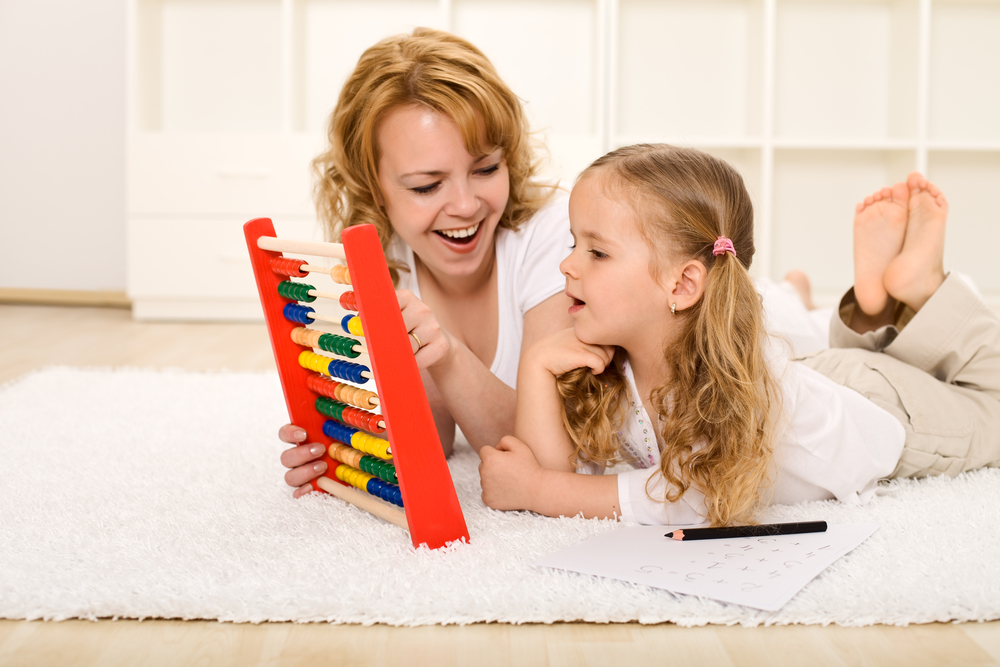
The above math activities for preschoolers will help lay a solid foundation for your child. They will learn all the essential concepts, including counting, number symbols, shapes, and measuring.
Preschool is an important time for your child. Everything they learn now will benefit them as they continue in school. Help your child get excited about math by introducing them to fun games and activities.
They may not grasp all of the concepts at once, but be patient with them and you will see them thrive!
For more fun activities for children, check out the HOMER Learn & Grow app.
,


